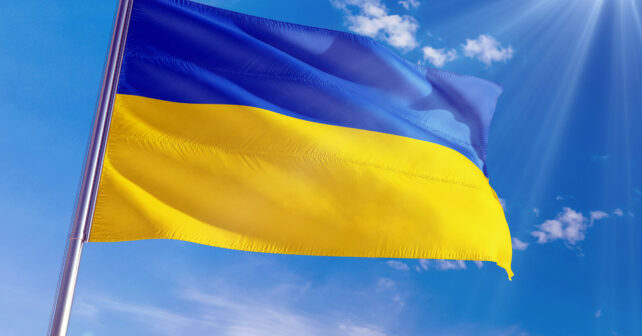
With thousands of civilians killed since February in the Russian war on Ukraine, the Ukrainian people face one of the biggest challenges in their history. As officials and observers allege war crimes, we spoke with three on-the-ground physicians about what is happening, how emergency physicians there are coping, and what they need to survive.
Humanitarian Crisis
At the time of this printing, Russian troops had bombed 34 hospitals and medical facilities including the country’s biggest children’s hospital, Okhmatdit, a children’s onco-hematology and marrow transplantation center in Kyiv. Russian troops have shot at unarmed refugees and forbidden access to medics and rescue teams in occupied regions by shooting at them without warning, according to Anton Volosovets, MD, Dr. Sc., head of the department of emergency medicine at Shupyk National Healthcare University of Ukraine in Kyiv.
“People in occupied regions are without food, electricity, and gas, which leads to humanitarian catastrophe,” Dr. Volosovets says. “Children are dying without receiving basic life support. From the beginning of the war, we know of about 38 murdered children and 71 children who were wounded.”
ACEP Liaison Vitaliy Krylyuk, MD, a surgeon and emergency physician at the Ukrainian Scientific and Practical Center of Emergency and Disaster Medicine, a division of Ukraine’s Ministry of Healthcare in Kyiv, says what is going on is not a military operation, but terrorism. “It’s like World War III,” he says. “They [the Russians] absolutely don’t have any humanitarian principles.”
On March 1, ACEP released the following statement commending the bravery and steadfast commitment of emergency physicians currently treating patients in Ukraine.
“ACEP proudly supports the emergency physician colleagues currently working in Ukraine,” said Gillian Schmitz, MD, FACEP, president of ACEP. “Emergency physicians across the world make a promise to treat anyone, anytime, and that means during conflict, disaster, pandemic, or any other difficult time. ACEP members are courageously rising to meet the moment and treat patients under extraordinary circumstances and incredible duress.”
Brian R. McMurray, MD, FACEP, an attending physician at Vanderbilt University School of Medicine and ACEP’s Lead Ambassador to Ukraine, has been to Ukraine more than 40 times. We spoke with him via Zoom when he was in a location near the Moldovan border, working with local officials to set up deliveries of humanitarian supplies. Long-time friends with Dr. Krylyuk, McMurray says he wishes he could be with his colleague in Kyiv, but the corridors used for getting in and out of the city are not safe. That evening, he met a couple of families in the border town where he is staying; they had evacuated through one of these corridors after spending 12 days in their basement. “They finally couldn’t stand it anymore,” he says. “They just got to the Moldovan border earlier today, dropped off their wives and kids and are headed back to the battle ground. That is a microcosm of Ukraine today.” He added that men who are 18 to 60 years old in Ukraine are required to serve in the war unless they have three children or more, and that even if it weren’t required, they want to fight for their country.
Pages: 1 2 3 4 | Single Page




One Response to “News From the Frontline: How Emergency Physicians in Ukraine Are Coping”
November 3, 2022
Carol mary MarshallGood luck and best regards to medical staff doing a great job